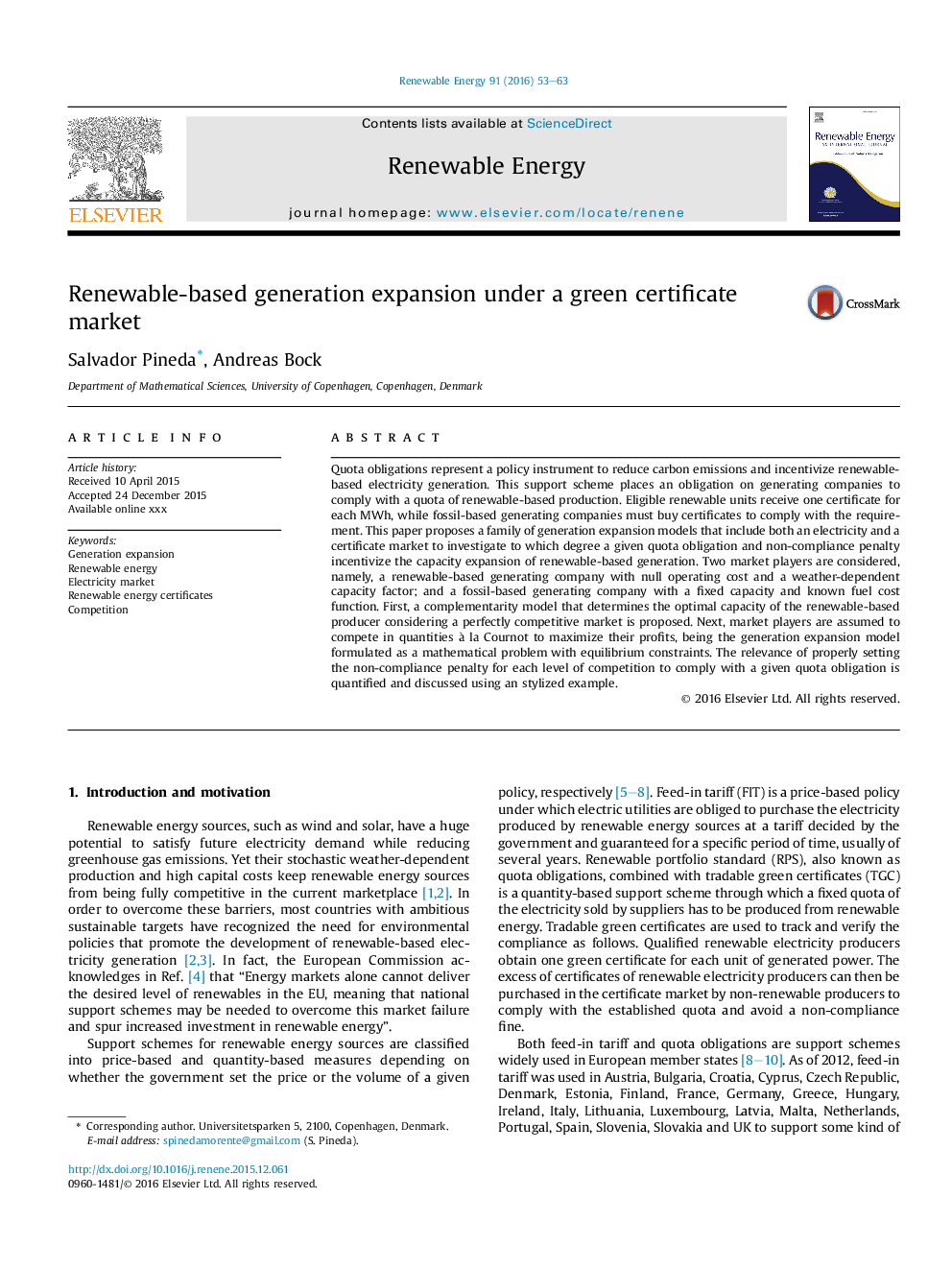| Article ID | Journal | Published Year | Pages | File Type |
|---|---|---|---|---|
| 6766003 | Renewable Energy | 2016 | 11 Pages |
Abstract
Quota obligations represent a policy instrument to reduce carbon emissions and incentivize renewable-based electricity generation. This support scheme places an obligation on generating companies to comply with a quota of renewable-based production. Eligible renewable units receive one certificate for each MWh, while fossil-based generating companies must buy certificates to comply with the requirement. This paper proposes a family of generation expansion models that include both an electricity and a certificate market to investigate to which degree a given quota obligation and non-compliance penalty incentivize the capacity expansion of renewable-based generation. Two market players are considered, namely, a renewable-based generating company with null operating cost and a weather-dependent capacity factor; and a fossil-based generating company with a fixed capacity and known fuel cost function. First, a complementarity model that determines the optimal capacity of the renewable-based producer considering a perfectly competitive market is proposed. Next, market players are assumed to compete in quantities à la Cournot to maximize their profits, being the generation expansion model formulated as a mathematical problem with equilibrium constraints. The relevance of properly setting the non-compliance penalty for each level of competition to comply with a given quota obligation is quantified and discussed using an stylized example.
Keywords
Related Topics
Physical Sciences and Engineering
Energy
Renewable Energy, Sustainability and the Environment
Authors
Salvador Pineda, Andreas Bock,
